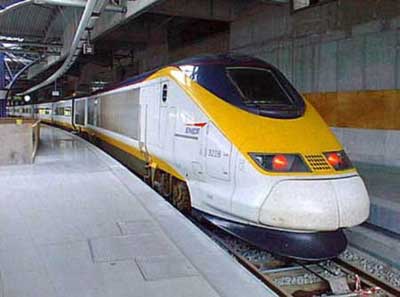First-class travel is what business professionals expect when flying. Just 10 minutes in the lounge, followed by a comfortable seat, quiet surroundings, and a delicious meal served.
This is now a reality at London’s Waterloo train station.
Since January 2005, the international railway company Eurostar has launched a new Business Premier service to compete in the cross-Channel transport sector with the airline industry.
Paul Charles, the director of Eurostar, affirms that for the first time, passengers will enjoy high-quality service on a short journey from London to Paris and Brussels.
 |
|
International high-speed railway Eurostar. |
In fact, thanks to faster travel times and greater convenience, Eurostar trains are operating more efficiently. Flights to Paris have even ceased to exist at two major London airports, Gatwick and Stansted. Eurostar currently captures the majority of passengers on the London – Paris route.
In the first six months of this year, the company transported 17% of the passenger volume on these routes. On the European mainland, half of the passengers traveling on the high-speed Thalys train from Paris to Brussels, Amsterdam, and Cologne are business travelers, achieving the highest rate in the world.
Of course, tickets are not cheap; a first-class seat on the route between Paris and London costs around 300 euros. However, Wi-Fi internet connections have been implemented on Thalys trains, making travel time truly productive.
The journey takes place right in the center of major cities at very high speeds.
The latest generation of high-speed trains can reach speeds of 300 km/h, and many more routes are being constructed across Europe. The International Railway Union in Paris forecasts that the entire continent will have approximately 6,000 km of high-speed rail by 2010, doubling the amount in 2000.
This means that connections between major cities will soon be completed in just three hours, under the psychological threshold of discomfort associated with long sitting times, making them fully competitive with air travel.
New railway lines are under construction, including a route connecting Rome and Naples, which is set to open this winter, reducing travel time to one hour from the previous 105 minutes.
A new Paris-Strasbourg line will open in 2007, cutting more than two hours from the current journey time of over four and a half hours. Upgrade plans this year will also save over 90 minutes on the Amsterdam-Paris route.
Many believe that the prosperity of the high-speed rail system is painting an increasingly bleak picture for the airline industry, which is already facing significant challenges.


















































